Treats like that deserve to be shared, so here are some of my amateur photos and some notes from the homilies:
Ordained Priest were Matthew Boland and James Baxter, and ordained Deacon was Robert Krishna.
The homily was given by Archbishop Anthony Fisher O.P. and this is a rough transcript:
'What does it mean to be a priest of Jesus Christ? If we look at some of the great Hollywood movies from the 1950s onward, the priestly characters are depicted in a romantic and heroic light. A bit too far from reality in places, but they did manage to capture the spirit of sacrifice with some accuracy. Jesus turns our notions of leadership and greatness up-side-down when He reveals that He is among us as one who serves. Every priest is called to serve after the example of Jesus. If this is how Jesus acts, then we must do the same; we must empty ourselves and empty ourselves for others. Thus we may preach Him as His ambassadors. We are members of the Dominican order, called to preach Him, an order that is essentially clerical, but hopefully not clericalist. This year we mark the 800th anniversary of the Dominican order, and see these three as a special gift to us. Dominicans made their mark in the colonial period of Australia, even before the Benedictines. There is a patch of land nearby that is still called Blackfriars Estate. By the 1880s much of the original land was taken by the education office and acts of parliament. Those school buildings and the former teachers college now form part of the UTS campus (University of Technology Sydney). A Dominican is currently chaplain at UTS and our newly ordained Fr Baxter will be chaplain to Notre Dame campus. There is a story about how St Dominic spent all night in a pub conversing with a heretic, in order to convert him. Who knows, perhaps Matthew's experiences of working in a pub might prove advantageous as well. James had an experience in Year 2 of primary school of the truth and reality of the resurrection of Jesus. Time spent in his Year 11 days with an elderly priest caused James to ponder on the worthwhile life this priest had lived. He went off to Uni to study law, and it was only then that he started questioning whether law was the right path. An end of year retreat in 2003 started him thinking more seriously about the mission of the Church and what his own role in that might be. Matthew studied Maths and Physics and walked the Camino. The influence of Fr Dom Murphy began his attraction to the Dominicans. We know that Matthew has a particular passion for introducing others to the thought of St Thomas Aquinas. Robert has had a long journey too. At various times he has been a Hindu, an agnostic, an atheist, Anglican and finally a Catholic after a long intellectual search. For him, too, that end of year retreat in 2003 was a turning point in his vocational journey. Aquinas said that we should be awestruck that God should grant such graces in sacraments through human agency. No one can fully express the sweetness of this Blessed Sacrament of the Eucharist. It is the Sacrament of Sacraments. It is not just a sign of Christ's love, but Christ Himself, present body and soul, humanity and divinity to bring about communion with us. The hour has come for the three of you to take your place in a new way at the altar of the Lord. You are called to be heroes, to self-sacrifice, to put others first. You are called to serve, for that will prove your true greatness.'
'Some may think of St Benedict as a remote and distant figure from 6th century Norcia, but his story still resonates today. As a young man Benedict went to Rome to study, and saw the dissolute life of the city. His response to that was to begin a search for silence and a search for God. After a while a dying monastery asked for his help in getting it healthy again. The monks there were living a rather loose monastic life, and Benedict came to them bringing added strictness to their lives. Unhappy some of the monks tried to poison Benedict. However as he said the blessing, the cup containing the poison broke. That's a good reminder to pray grace before meals – just in case – isn't it? St Benedict is not without his influence in Australia. We have the monastic town of New Norcia near Perth together with the AFL Oval at Subiaco. The first archbishop in Australia was Bede Polding, a Benedictine. What can St Benedict teach us today? That we need silence in our lives in order to hear the Word of God and His message to us. That we need time to be with Him in silence, to listen. The prophet Elijah had his own search for God, going up a mountain (whenever the scriptures talk about going up a mountain, that's code for 'something really important is going to happen – pay attention'). It was in the gentle breeze that Elijah met God. If we don't give time to God, it is very hard to hear what He has to say. God has to be number 1 – even above family – and then everything else will fall into place. Take advantage of the silent moments at Mass, at adoration and at other times of prayer. Lectio Divina is a good way of meeting God in His Word. We ask that through the intercession of St Benedict before God, that His peace may come into our lives. Let us imitate St Benedict and include a bit more silence in our lives.'
St Benedict, pray for us.
St Dominic, pray for us.
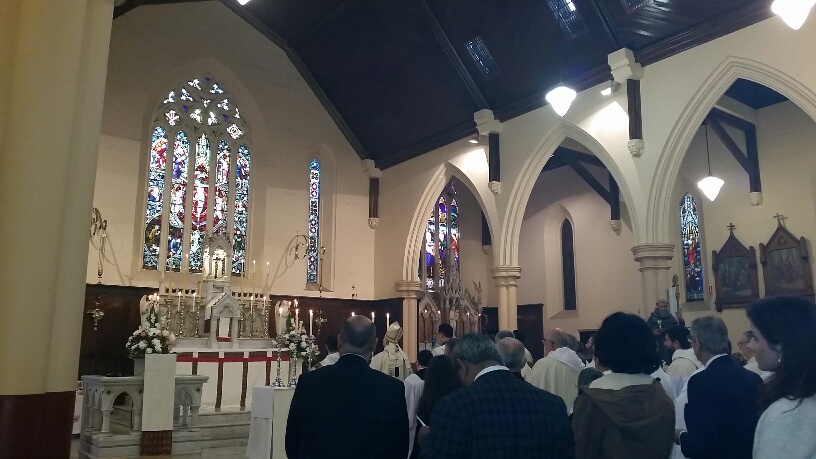
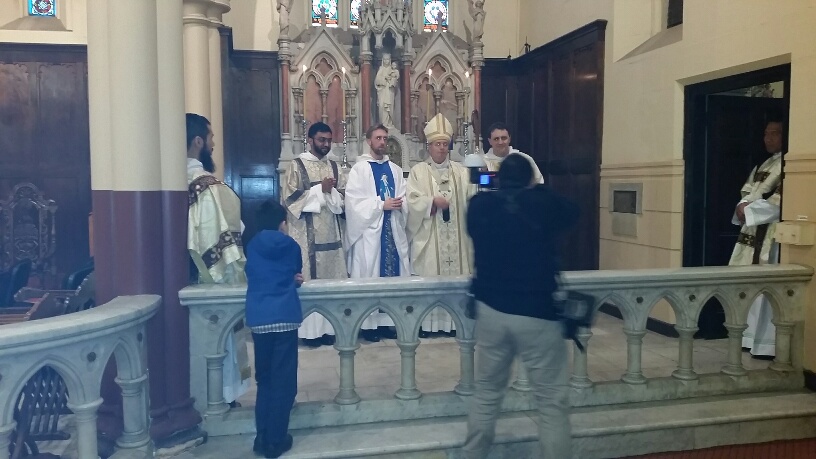
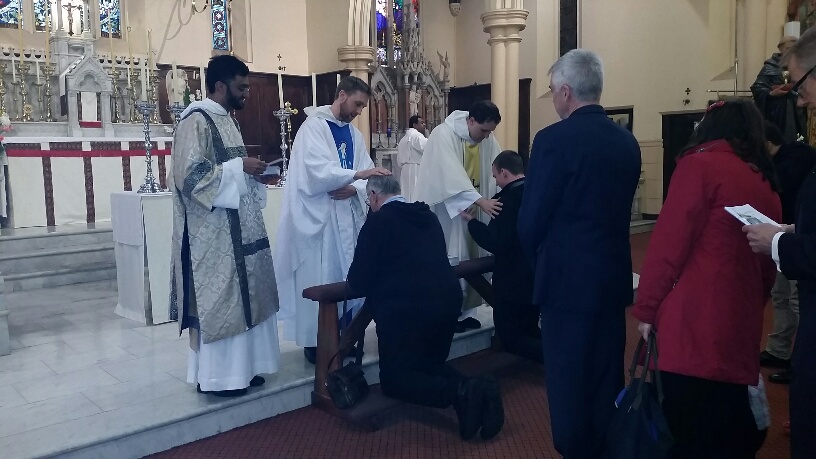
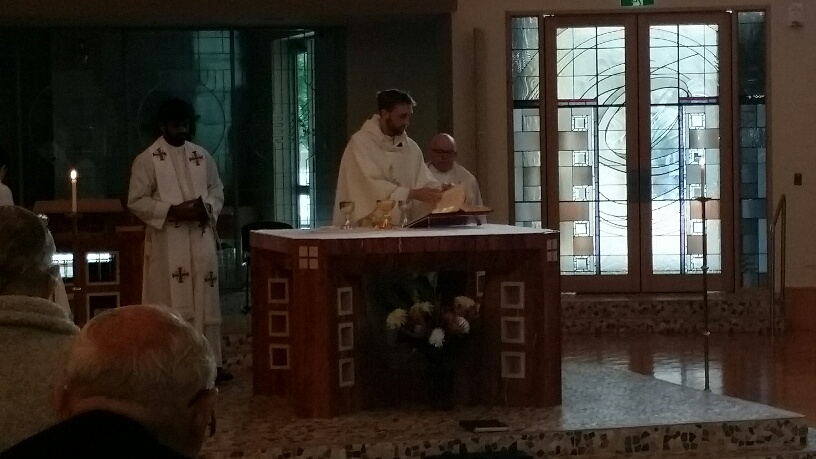
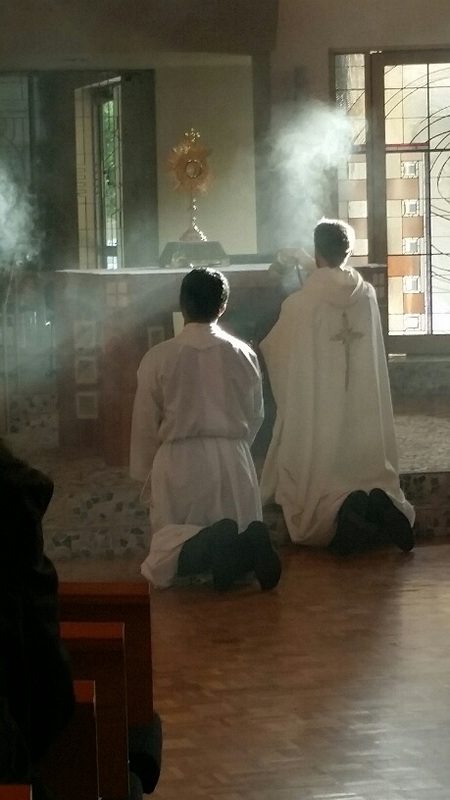
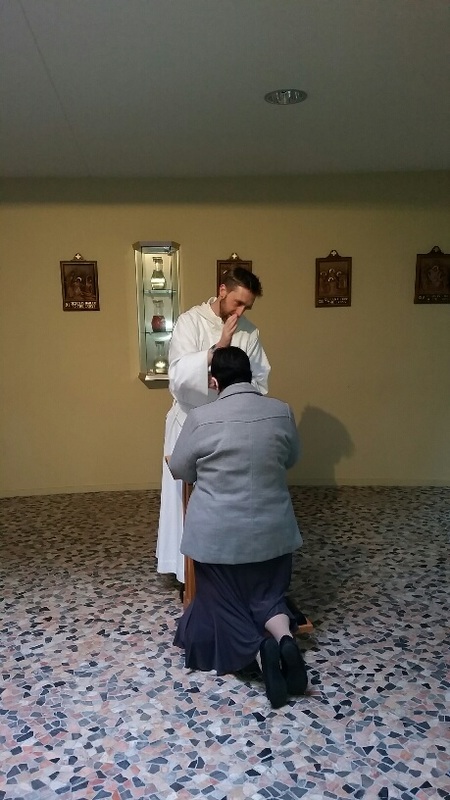

 RSS Feed
RSS Feed